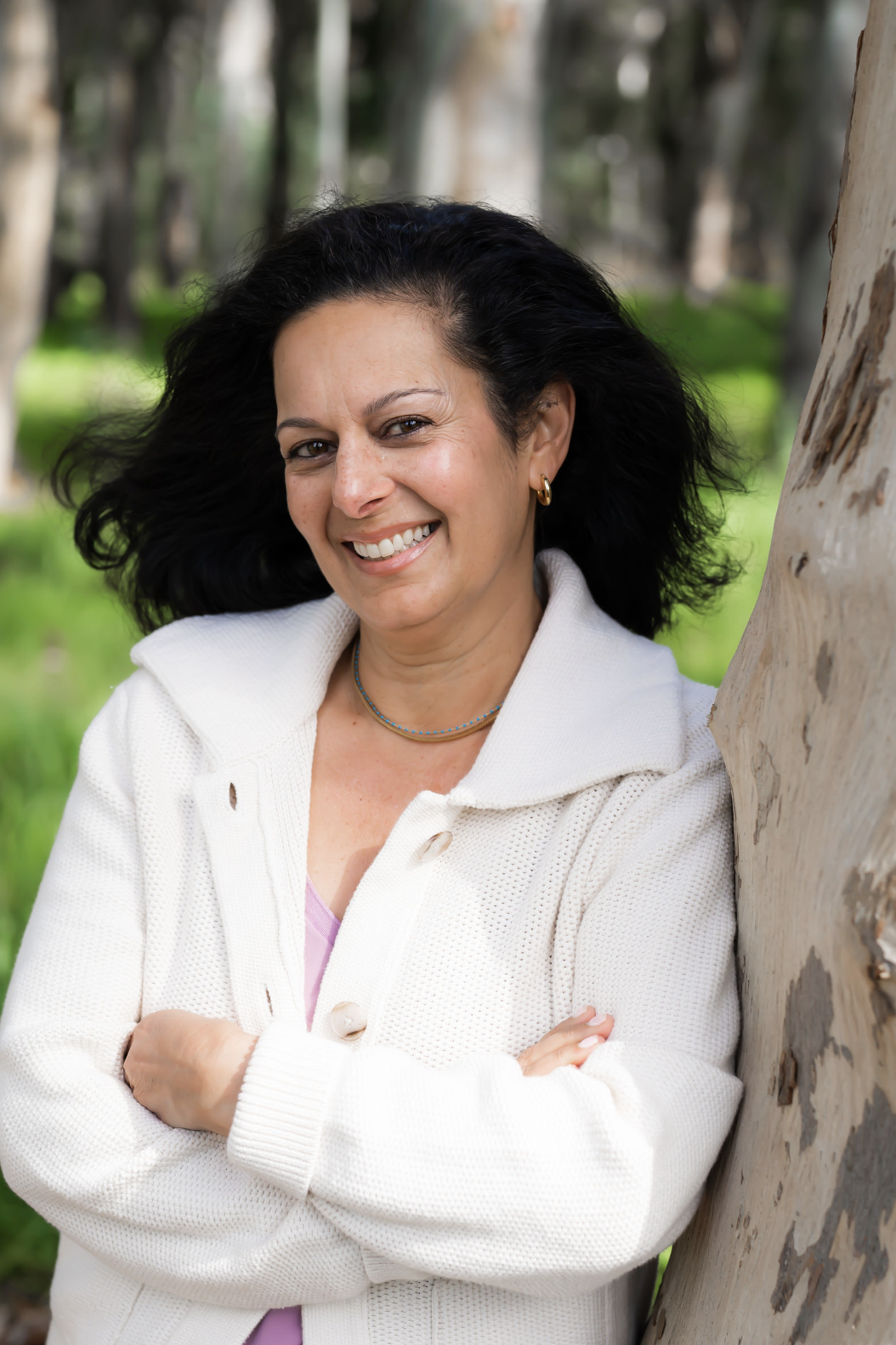Imperfect
The Baltimore Post-Examiner is honored to present Katy Motiey‘s latest book, Imperfect – The story of one woman’s loss, courage, love, and perseverance before and during the Iranian Revolution.
PROLOGUE
January 1979,
Tehran
Everything around Vida went dark. So much lost already, and now the power outage for the sixth time this week.
“Roya joon!” Vida called to her daughter. “Stay in your room until I light the candles.”
Vida slid her hand across the cool surface of the wooden end table and searched for the box of matches she had left along with a lighter next to the candle the night before. She bit her lip. Was she already getting used to the changes being forced on her—on all Iranians?
The electricity, she had noticed, went off at 8:00 p.m., when the nightly news was scheduled to air. It came back on at sunrise, before morning prayers, when most people in Tehran were still sleeping. Electricity was being used like a soft drug.
 Fiddling, she sent the lighter skidding off the table. It bumped its coating against the striped wallpaper and fell on the soft carpet with a thud. The flare of the first match briefly illuminated the whole room. Its sulfur smell lingered. It, too, was part of this new life.
Fiddling, she sent the lighter skidding off the table. It bumped its coating against the striped wallpaper and fell on the soft carpet with a thud. The flare of the first match briefly illuminated the whole room. Its sulfur smell lingered. It, too, was part of this new life.
At least we’ve already eaten, Vida thought as she rounded the room, lighting other candles. Roya had eaten her light supper favorite, a tuna fish sandwich with lots of mayonnaise on white toast, while Vida ate pieces of lavash bread spread with feta cheese, sprinkled with walnut bits, topped with a few basil leaves, and rolled into bite-size pieces. As always, she finished her meal with coffee whitened with the powdery non-dairy creamer she bought at the commissary, where she had access because of her American Embassy job.
“Mom, what are we going to do tonight?” ten-year old Roya asked. Standing in the dark doorway of the family room, she pushed her fingers against the opening, swaying gently side to side. She was a moving shadow, a stream of candlelight making her hazel eyes sparkle. Eyes so much like Kamran’s, Vida thought with a sudden ache, missing her late husband both for herself and for their daughter.
Vida went to Roya and stroked her thick bundle of short black curls. “Maybe you can write in your new diary, azeezam. Can I help you find it?”
“Mommmm… I know where I put it,” Roya complained.
At first the thirty-eight-year-old had worried her daughter might develop a fear of the dark, but Roya had adjusted to the blackouts and the routine that came with them. Now Vida wavered between relief and concern that her daughter took it all in stride and was adapting to a dangerous situation.
“You better put on the wool sweater Maman knit for you,” Vida said. “It gets cold at night.” The last thing she needed was Roya getting sick.
The little girl retrieved the striped sweater Vida’s mother had knitted for her and stretched it over her head. She then settled on the love seat close to the candles, her legs folded to the side the way her mother sat. Vida smiled. Roya wrote with the paisley-fabric-covered diary on her lap, glancing up and pursing her lips now and then, as if concentrating hard on what to write. A real thinker like her father, Vida thought. Soon her determined daughter wrote and wrote with her head lowered.
On the couch opposite her, Vida held a book near the candlelight, trying to relax. She read the same few sentences over and over, her mind skittering between the airport shutdown the week before, the snowstorm expected to hit Tehran the next morning, the latest bomb scares at the office, and what would be essential to take if they had to leave the country with little notice. She stretched her legs in front of her, bending her toes back and forth and making a slight cracking sound. It was a minor release of pressure.
Out of the silence, a thunderous boom rattled the windows and brought Vida’s hands to her ears. She leapt, grabbing Roya by the arm and pulling her toward the bathroom.
“Mommy! What’s happening?” Roya cried, tugging at her mother’s pants.
“I’m not sure, azeezam. Maybe some people in the streets.” Vida’s whole body was trembling. She clenched her jaw to keep her teeth from knocking against each other. She tried to keep her voice light so Roya would not get alarmed. Once her daughter broke out in hives at the sight of her frantically searching for car keys when she was late for an important meeting.
In a brief moment of quiet, thinking about all that had and could go wrong, Vida gazed at nothing in particular.
It was just the two of them, mother and daughter, alone in the middle of Tehran in the upstairs unit of their duplex. All the rooms had floor-to-ceiling windows facing the street. The only room without the windows was the bathroom where they huddled now, waiting for the booming to stop.
Vida could hear people outside, demonstrators. She gripped her daughter tightly until her knuckles went white.
The apartment was close to a community center where young people gathered to exchange ideas. Recently, students had begun meeting there openly to protest the Shah’s regime.
Now Vida heard yelling, screams, and gunshots. Close. Escalating riots. What if the bullets hit the windows, and the glass gets all over the floor? She curled up on the floor of the bathroom with Roya next to her, shoulders shrugged with beads of sweat forming on her forehead
“Stay right here, okay? I’m going to make a phone call,” she told Roya, and squeezed her daughter’s perfect little hand.
“But Mommy…”
“Stay here. Do you want me to get Mrs. Beasley?”
“Mommm… remember? We gave her away last year,” Roya whined, declaring herself too old for dolls.
Vida caressed Roya’s cheek.
She recalled Roya had given the doll away. A few times a year they gave away old clothes and toys to Ali, the janitor at the library where Vida worked. Vida figured one of Ali’s many daughters would make use of Roya’s hand-me-downs.
“Oh, that’s right. Just stay here. Don’t leave the bathroom.”
Vida bent down and walked close to the ground, past the several rooms to her own bedroom. She took the orange phone from the dresser, crouched on the floor in the corner between the bed and the nightstand, and nervously inserted her index finger into the coil of the cord. Her heart was racing.
“Linda, Linda… it’s me,” she said in a soft voice. She took a deep breath and tried to sound calm. She didn’t want Linda to worry. She could handle this.
“Oh, Vida.” She sighed. “I’m glad you called. We heard about the demonstrations near your house. They’re closing Pahlavi Avenue from both sides.”
“I can hear the shooting. They’re on our street.” The windows rattled.
“Oh gosh.” Linda sounded worried.
“Moommmy… my stomach hurts,” Roya yelled from the bathroom. Vida looked out the bedroom. The bathroom door was open, and Roya was spread out on the floor between the bathroom and the family room, her face ashen.
“Roya joon, I told you to stay in there,” Vida raised her voice. “I don’t feel good, Mommy.”
Why is Roya so pale? “Okay, I’m coming.”
“Linda… I can’t talk. I’ll call you back in five minutes,” Vida said.
“What’s happening?” her American friend asked.
“I better go.” Vida hung up. She grabbed a pillow, the flower- patterned bedspread, and the blanket folded at the foot of her bed—the one Maman, her mother, had knitted the year before. She shuffled to the bathroom, bent low to the ground, and shut each of the bedroom doors along the way.
She sat close, placing her arm around her daughter’s shoulder and pulling her in. “Roya joon. It’s okay. We’re going to sleep in here tonight.”
“Mom, I want to sleep in my own bed.” Roya’s voice sounded weak.
“I know… I know, azeezam.” She rocked Roya back and forth.
The tiles on the bathroom floor were cold, and Vida pulled her daughter closer. They sat on the bathmat by the sink, the mother cross-legged, the little girl held in her arms as Vida stroked her locks. Roya lay limp.
“What’s wrong? Are you nervous?” Vida kissed her daughter’s forehead.
“No,” Roya whimpered.
Vida could barely hear her voice, and she wasn’t convinced.
“We’re going to be fine. A few people are on the street, but they’ll go home soon. Don’t worry.”
Vida remembered two weeks before when she drove to work the morning after midnight marches. She had witnessed pages ripped out of books flung all over the sidewalk next to the Abraham Lincoln Library where she worked. A half-burnt poster picture of the Shah with hand-drawn horns rising out of his ears and one of his eyes poked out hung from a building wall. A large white sign lay on the side of the street covered in blood-red handprints that read “Marg Bar Amrika”—Death to America. She shivered at the leftovers of a partially burnt US flag and a woman covered in a chador clenching the black cloth with her teeth. Only one eye was showing, the one eye that had stared Vida down as she snuck into the library that morning.
“Mommy, I don’t feel good.”
She touched her daughter’s forehead. Warm. What would she do if Roya got sick? That cursed curfew prohibited moving around the city, even for medical emergencies. Even with no restrictions on being outside, Vida didn’t have enough gasoline in the car to get her to Tehran Pars hospital. The oil refineries were on strike, and gasoline was rationed.
The week before, Vida and Roya had emptied the refrigerator, taken whatever food was in the apartment, and moved in with Linda and her family for four days. She didn’t have enough fuel to get home. At nights, the two mothers would tuck the children in bed and, together with Linda’s husband, would listen quietly to the battery-operated shortwave radio for any news from the BBC. One of the nights they went to the rooftop and heard demonstrators chanting “Allah o’Akbar.” They even heard a few gunshots. Once Vida was able to get gas, she had returned home with a few remaining groceries.
Now, she held Roya in her arms, hoping, praying it was nothing serious. She noticed Roya’s eyes rolling to the side. Her skin even more pale.
“Roya, Roya,” she yelled slapping the little girl’s face and squeezing her cheeks.
“Mommy… maaaa… I’m going to…” and then the girl’s body jolted forward.
“Sit up, sit up.” Vida moved her close to the toilet and lifted the seat. Bracing Roya’s head over the bowl, she held back the curls so they wouldn’t get in the way.
“It’s okay. If you need to throw up. Just do it.”
“Uhhhhh…” Roya cried out. A lump-filled white mixture splattered into the toilet bowl. Roya jolted again, and more came up. Tears were streaming down her face, but she wasn’t crying. She stayed bent over the porcelain bowl.
“Did it all come out?” Vida asked, hoping it was over. She looked away, fixing her eyes on the pale blue wall to keep herself from throwing up. She rubbed her daughter’s leg, knowing that would calm her.
Roya jolted forward again, but nothing came out this time.
Vida grabbed a tissue and wiped her daughter’s mouth. She ripped off a piece of toilet paper, held it up against her little nose, and told her to blow. More stuff poured from her nostrils. Vida’s hands were shaking, and she tried to keep still.
Peering into the toilet bowl, Vida noticed a push against her own stomach. She held back and then flushed it. She touched Roya’s forehead and then the side of her face. She rested Roya’s cheeks in her sweaty palms and stared into her eyes. Her daughter was running a fever. Is she going to throw up again, or is it over? How will I get her to the hospital?
The sandwich! It was the tuna fish. The half-used jar of mayonnaise in the refrigerator, the power going on and off for weeks, ten or twelve hours at a time. It had gone bad. Poor baby, she thought. What was I thinking, letting her eat tuna and mayonnaise? Vida had bought feta earlier that day at the Jewish deli near the library where she worked for her own dinner, but she hadn’t thought about the hidden risk of Roya’s tuna fish request.
“Stay here. I’m going to get you a Seven Up.” “Okay, Mommy,” Roya moaned.
Vida dashed through the family room and the entryway into the kitchen—windows all around her, shots outside, the building across the street up in flames. She didn’t notice any of it. She swept her hand across her forehead to get rid of the sweat before opening the refrigerator. Her hand shook as she grabbed the bottle sitting in the door. She darted back to the bathroom, hearing a loud booming from beyond the living room window.
Smoke surrounded the building, and sirens blared through the night. Someone yelled into a bullhorn, and masses of people repeated after him—“Allah-o-Akbar”—God is great. Women screamed.
Vida quickly made it to the bathroom and shut the door. For that instant the sounds were gone, but she knew closing the door only gave them temporary relief. They would be safe, at least for a little while.
Vida sat on the ground and poured the drink into a glass, the bubbles making a fizzy sound. She took a deep breath.
“Here… ghorboonet beram… drink this. You’ll feel better.”
Roya rested on the tile floor and leaned against the wall, her head bent to the side. Her color was back.
“You’re going to get cold. Sit on the mat,” Vida insisted.
“It feels good here.” The little girl’s body was limp, but she carefully pushed herself up to take a sip.
Vida could tell she was feeling better. She let her daughter lie against the wall for a few minutes, drinking the soda. She thought frantically about food poisoning and hoped Roya’s prompt rejection of the bad food would lead to a quick recovery.
A few minutes went by, and Roya seemed more relaxed. Vida padded the inside of the bathtub with her bedspread and put her pillow at the end, opposite the waterspout. Roya crawled in, and Vida covered her with Maman’s blanket, tucking it around her so she was completely covered, as if in a sleeping bag. The sounds outside diminished, at least for a moment. Vida slid out of the bathroom and blew out the candles. When she came back Roya was dozing off. Vida ran her finger along her daughter’s face, kissed her on the forehead, and knelt, leaning on the tub.
“Where are you going to sleep, Mommy?” Roya whispered, her eyes almost shut.
“Don’t worry about me. I’m going to sit right here next to you. I’m not going anywhere.”
Out of the silence came the shrill sound of the phone, startling Vida. She stood to get it.
“Who’s that, Mommy?”
Maybe it’s Kasra calling from Munich? The knot in her stomach grew. She didn’t want her fourteen-year-old son to know about the demonstrations. He was only four years older than his little sister, but he had grown up so much during those four years. Maybe it’s Linda calling back?
She got up to walk out of the bathroom, but then the phone stopped ringing.
“It’s nothing. Go back to sleep.”
Vida watched as Roya’s eyes grew heavier and eventually shut. She looked cozy in the white tub, like when she was a baby in her basinet. I must get her out of this country, Vida thought.

Katy Motiey is an attorney, the Chief Legal, Administrative and Sustainability Officer at a US publicly traded company. She graduated from Georgetown University, undergraduate and law school. Although she was born in Iran, she immigrated to the US from Iran at age ten with her mother and brother during the Iranian Revolution. Katy enjoys spending time with family, including her remarkable mother, the subject of her first novel, Imperfect. For more information, visit katymotiey.com.

